CONNECT
What have Carol and I been doing since COVID-19 raced around the world shuttering the world’s economy? As a Realtor and a beekeeper, I have stayed busy as an essential worker. For the most part, as a Realtor, work has evolved, more Zoom calls and fewer face-to-face meetings. But not for the bees. Bees are all hands on, but the benefits are so very sweet.
Honeybees are not native to North America. There are about 4,400 bee species in North America, and a little over 400 bee species in Maryland. Most of Maryland’s native bees are solitary bees and do not build colonies like the honeybee or the native bumblebees. The honeybee was brought to North America with the first colonist and the honeybee spread throughout the continent. Indeed, the Native Americans called them “white man’s flies” because they usually arrived just before the settlers did as they moved west. Feral hives in the wild were more common than now for a variety of reasons. For example, a few years ago, Colony Collapse Disorder (CCD), was described. We have not seen CCD for several years now and it is thought to have been caused by a virus. But the bees are still struggling, and we lose about 60% of our hives a year in this area alone. Why are they dying? There are several reasons: loss of habitat, insecticides, fungicides, herbicides, and disease. Right now, the Varroa Destructor Mite or Varroa Mite is one of the biggest culprits. It attaches to the underside of a bee and sucks the fats out of the liver, weakening the bee and transmitting disease. This means that every week I am working with my bees or doing something for my bees to keep them alive.
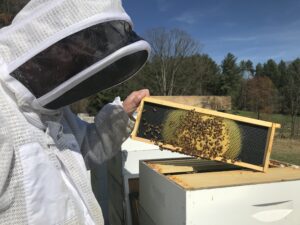
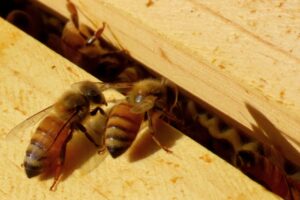
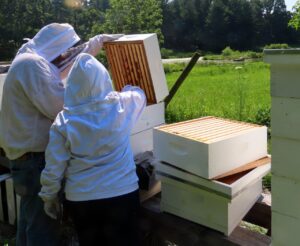
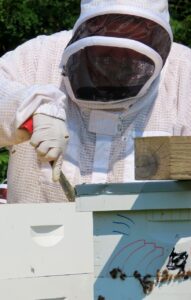
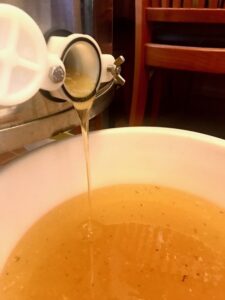
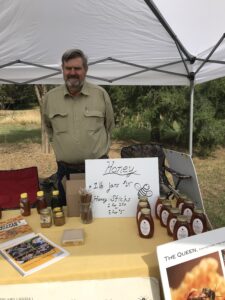
I started beekeeping because I found that my garden was not being pollinated the way I hoped, and I had noticed a sharp decline in native pollinators in the yard. One-third of the food that we eat is produced because of the pollination done by pollinators such as bees. But I also did not realize how much work it is to keep bees. As beekeepers we visit the bees weekly in order to keep the bees alive. The only downtime is in the winter when on a warm day we check to see if the bees have enough food, it is also a time to prepare and repair equipment for the following year. Overall, beekeeping is a very rewarding hobby. Carol and I enjoy the drives out into the Agricultural Reserve, and since both of us have farming backgrounds, it is a way to revisit our roots. I also feel beekeeping allows us a way to be closer to God.To have a teaspoon of sweet honey is always so special. Honey is mentioned in the Bible 61 times so it must be good!
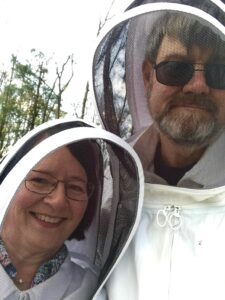
© 2022 Gaithersburg presbyterian church